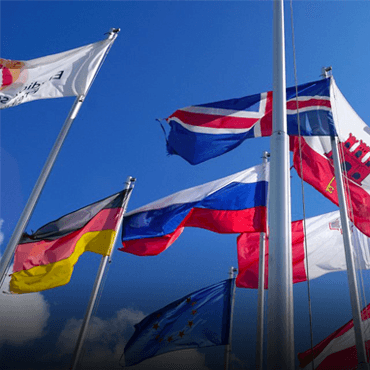If you’re one of those people looking to expand your horizons internationally, you’ve probably encountered the terms “residency” or “citizenship” a lot. However, although these words are frequently used interchangeably, they mean different and occasionally contradictory things. What, therefore, is the precise distinction between residence and citizenship?
A residency is a legal document that, depending on the regulations of the host nation, permits you to stay in that country for a specific amount of time for a specific number of years. This residence must be renewed regularly to keep it legitimate. Having a residence permit frequently enables you to do things like move into a new home whenever you like, buy a house, get health insurance, and enroll your kids in school. You can travel to other Schengen nations without a visa for up to 90 days if you have a residence permit from an EU nation, however, the holder of the permit does not have any political rights in the country, such as the right to vote.
There are two different types of residency: the first is temporary residence, which gives a person the right to live in the nation for a set amount of time with the option of renewing it following the laws and policies of the state. The second type of residency is permanent residency, which grants you the right to stay in a country for a longer period (extending for years). The length of residency varies from one country to another because, according to the laws of some nations, residency may enable you to obtain citizenship.
The majority of these programs—often referred to as the “golden visa”—are found within the European Union because they offer a wide variety of investment opportunities. Residency by investment programs gives you the chance to acquire legal permanent residence in another country in exchange for an investment in it. You can choose from a variety of programs at RICE Immigration. You can find residency through real estate investment in (Cyprus, Greece, Portugal, Malta, and Hungary) here. RICE also provides residency programs for businesspeople in Canada through provincial nomination programs and Canada visas for startups, in addition to the residency program in America through the EB-5 Investment Program and Australia’s Business Innovation Program.
When it comes to the idea of citizenship, it is a state of membership and belonging to a state. Unlike residents, citizens have access to all the rights, privileges, and obligations outlined by that state’s laws, including the ability to vote, participate in politics, receive a certain level of education, and access health care. Citizens can also apply to grant their children the right to citizenship, typically for life.
Citizenship is often earned through birth, parentage, or marriage in a country, but this may not be a possibility for everyone. Citizenship-by-investment (CBI) programs enable individuals to get a second passport by investing in the nation. Most of the top citizenship initiatives are found in the Caribbean (Dominica, Saint Lucia, Saint Kitts, Nevis, Antigua and Barbuda, and Grenada).
RICE Immigration is an authority on citizenship and residence policies in Europe. You can begin by getting in touch with our team, who is prepared to respond to all of your questions and requests for information.



